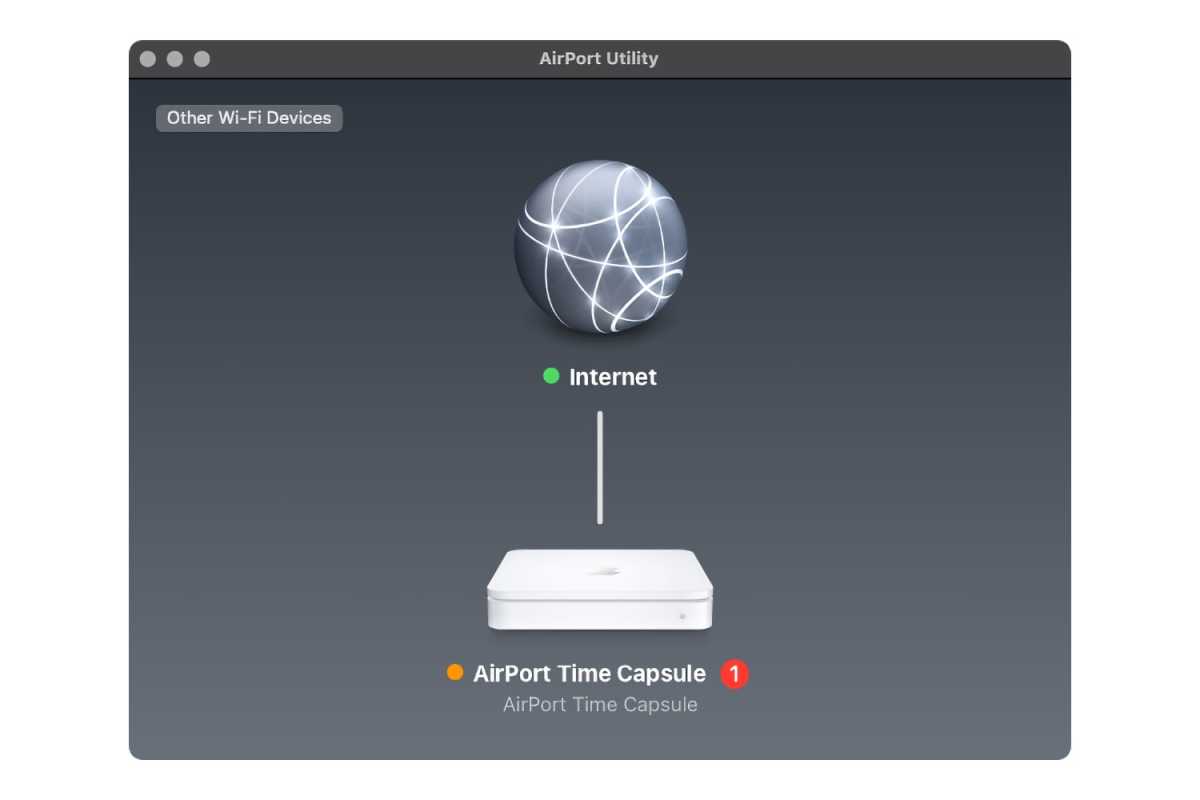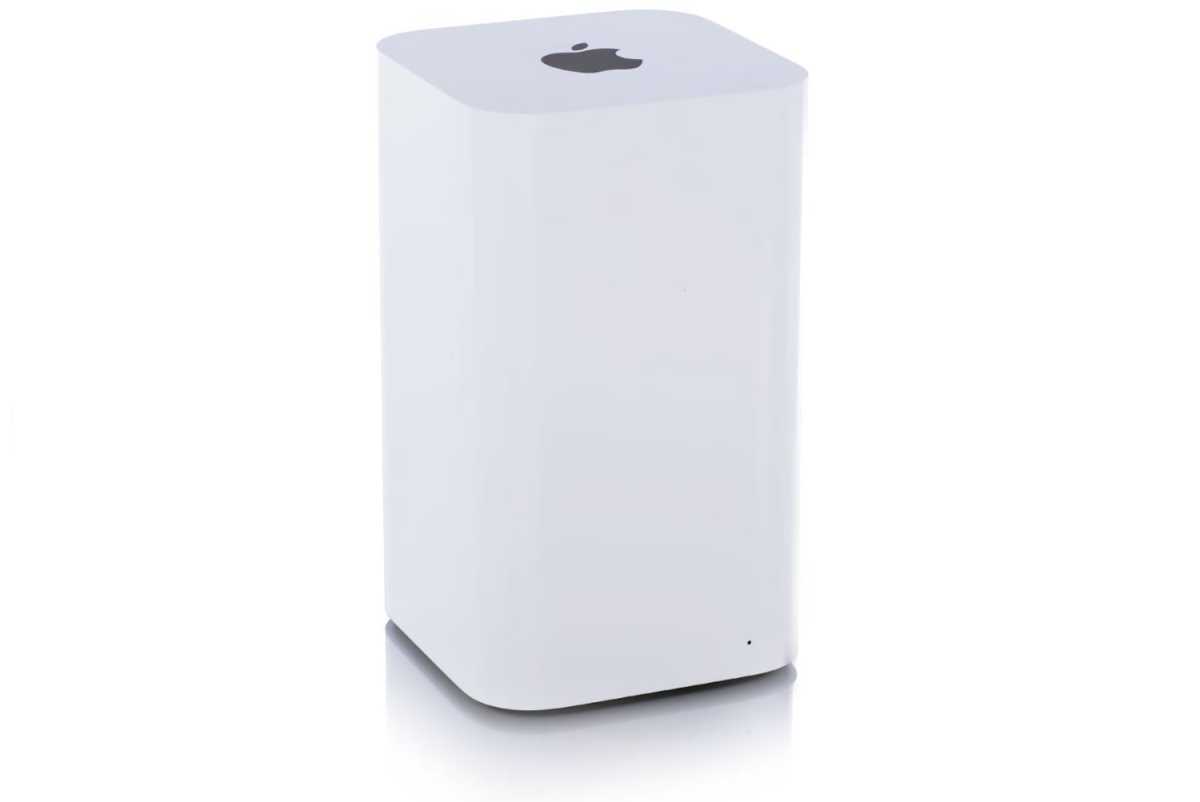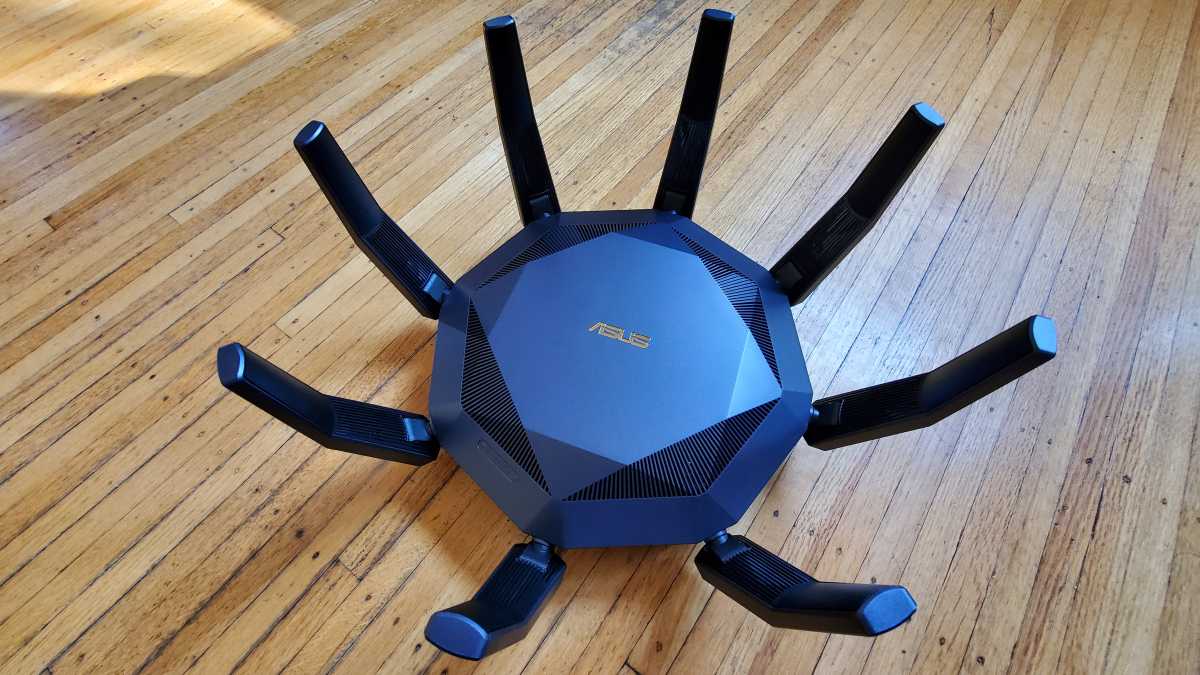Ah, the humble wireless router: a staple of the internet age, something we’ve all got tucked away in our house somewhere (or worse, out in full view). They’re a pain, a thing that sometimes just needs to be rebooted for no apparent reason, whose errors can be mystifying, and whose troubleshooting and management can make even the most tech-savvy among us grit their teeth in frustration.
It didn’t have to be this way. Once upon a time, Apple was in the business of making wireless routers. The AirPort line debuted in 1999, at the same event where Apple introduced the iBook, the first consumer computer to offer built-in wireless networking. Over the course of nearly more than a decade, Apple made a succession of the devices, until it finally discontinued the line in 2018.
And now, more than ever, it’s starting to feel like that might have been a mistake. Is it too late? Could an AirPort resurgence save us from the pain of dealing with substandard routers? Or are we consigned to a future of annoyance and irritation?
Dawn of wireless
One of the things that made the AirPort line great was that it came at the heyday of Apple’s vaunted approach to technological simplicity. In an era where most people were just starting to get online and where Wi-Fi was in its infancy, Apple’s AirPort was an easy and fast way for consumers to get up and running, without having to know much about networking at all.
I had an AirPort Extreme in my home for around a decade as the sole wireless router, and in that time, I almost never had issues with my connection. Thanks to its app-based management system, I didn’t have to deal with janky web interfaces (though it did have its weaknesses, like a very slow reboot that seemed to be required with even the most minor of changes). And the AirPort Extreme packed a lot of power and features into a device designed with Apple’s trademark elegance, a box that didn’t offend if it sat below your TV.
While much of the AirPort line was certainly expensive for the time, the prices are hardly ridiculous by the standards of today wireless routers, which can often run to $150 or more for a top of the line model. And the reliability that came along with the AirPort was well worth the cost, given the “set it and forget it” nature.

Apple’s AirPort Utility provides an interface that’s freindlier to use than many web-based tools that currently are used by routers.
Apple
AirPort, terminal
Alas, Apple’s entry into the wireless router market wasn’t destined to last. As with other markets in which the company once competed, like printers and displays, routers had become commoditized, with prices increasingly driven down and lots of alternatives from companies that seemed to view networking as their primary business. On the other side, internet service providers increasingly pushed their own routers, bundled with their service and often combined with a modem, and many consumers took that past of least resistance.
The last AirPort the company produced, the AirPort Time Capsule, featured the Wi-Fi 5 (previously known as 802.11ac) standard that’s still largely in use today and came out in 2013—a full five years before the company officially pulled the plug on the line.
These days, you can still find used AirPorts and Time Capsules floating around, even on Amazon, and I’ve been mightily tempted every time I have an issue with my current router. But hope springs eternal that Apple might rethink its decision to leave the market and see the advantages to building a new AirPort that matches and even surpasses what it previously offered.

The AirPort Time Capsule stood tall even during its demise in 2018.
Apple
Why not fi?
One reason for Apple to jump back into the market is control: wireless technology has become an even more key part of Apple’s ecosystem. After all, most of its devices rely on a Wi-Fi connection, and Apple is a company that really likes controlling the whole experience, from soup to nuts. An increasing number of smart home gadgets also are now building in support for Thread, a feature that Apple itself has incorporated into its HomePod mini and latest Apple TV.
One major shift that happened not long after Apple left the wireless router market was the advent of consumer-oriented wireless mesh systems. These use multiple access points to blanket a large area with a seamless Wi-Fi network—think products like Eero, Ubiquiti, and AmpliFi. These products command a higher price tag, but they’re also intended to be simple and no-fuss—exactly the kind of market that Apple often excels in.
Moreover, there are opportunities for Apple to distinguish itself from its competitors by providing a privacy-focused device that helps users avoid tracking on any of their devices, perhaps by building in a system similar to the iCloud Private Relay feature it debuted in iOS 15 and macOS Monterey.

Surely Apple could design a more appealing multi-gig router than this.
Gordon Mah Ung
There’s also a chance to one-up the state of the art on design. So many popular wireless routers look as though they’ve been created by Batman, with sharp angular edges and antennas pointing every which way. Mesh systems tend to be a little more aesthetically pleasing, which has a functional advantage as well: you won’t try to conceal them in places that may not be beneficial to distributing a wireless signal throughout your home.
The long and short of it is that there remains opportunity in this space, and it’s one that, on a technological, design, and privacy front seems to—if you’ll pardon the expression—mesh well with exactly the tech that Apple does best. While I don’t hold great hopes that the company will re-enter the business, I can but dream. Now, if you’ll excuse me, I need to go restart my router again.
from Macworld.com https://ift.tt/ItXOxfM
via IFTTT